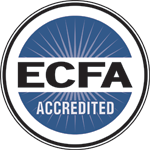Business Owner FAQs
Before a CCA chaplain starts work with a client, they will hold an orientation meeting to explain the benefits of chaplaincy, including chaplain confidentiality. This meeting is similar in tone and function to other benefits orientation meetings, with a time for questions. At the end of the orientation, employees receive a business card with the chaplain’s toll-free telephone number.
At the orientation, the employees learn that they, not the chaplain, make all decisions about interaction. In practice, virtually all employees eventually enjoy a good relationship with the chaplain simply because the chaplain is there for no other reason than to care.
Every week the chaplain will try to make brief personal contact with each team member. The chaplain will foster relationships with the employees by providing care and encouragement. The employee can call his or her chaplain any time to help with personal crisis management.
Chaplains are available 24/7/365 to care for employees in the workplace. In addition, chaplains will assist your employees in hospital care, family and marriage care, substance abuse, stress management, and interpersonal conflicts. Chaplains are certified to enter jail facilities, emergency rooms, and accident scenes. Your chaplain can also perform funeral services.
While many chaplains hold degrees and licenses in counseling, your chaplain will not provide counseling services. We provide care for those who need professional counseling by helping to connect them with a suitable counselor, either from the company’s insurance network or from our referral network.
In addition to regular rounds with employees, the chaplain is available to respond to crisis needs twenty-four hours a day, seven days a week.
Your managers will find the chaplain to be an effective management resource. Dealing with employees’ personal life issues can consume a skilled manager’s time, who may not feel adequately trained to provide advice in most cases. The chaplain is a valuable, well-trained resource that your managers can call in to help employees deal with delicate personal situations that employees bring to work from home.
Because a thorough understanding of the function of the workplace environment is essential, all CCA chaplains are required to have business experience. In addition, a well-rounded educational background, including Bible or seminary training, is required. CCA also provides a custom training and certification program for all chaplains.
No. We respect the faith boundaries of individuals and adhere to the standards and expectations for a confidential, voluntary, permission-based, and secular workplace ministry. When directly asked about their theological underpinnings, we’ve trained our chaplains to respond from a Biblical Christian worldview. Contact us to learn more information.
Yes. CCA’s chaplains are skilled workplace caregivers trained in providing care in a multicultural environment. They currently care for some 250,000 employees and their loved ones, representing many different religious backgrounds.
The company pays a flat fee based on the number of employees served, making the cost predictable. There are no additional fees based on the number of crisis interventions or hours of service. There is no cost to the employee.
There are several benefits to outsourcing chaplain care:
- Outsourcing is more cost-effective than hiring a full-time staff person.
- CCA’s training and support network give your company a wealth of resources in addition to your onsite chaplain. CCA has an outstanding track record of working with employees in all types of businesses.
- CCA has chaplains spread across America.
Companies as small as a few dozen employees and larger than ten thousand currently use the services of CCA chaplains.
HR Manager FAQs
Before a CCA chaplain starts work with a client, they will hold an orientation meeting to explain the benefits of chaplaincy, including chaplain confidentiality. This meeting is similar in tone and function to other benefits orientation meetings, with a time for questions. At the end of the orientation, employees receive a business card with the chaplain’s toll-free telephone number.
At the orientation, the employees learn that they, not the chaplain, make all decisions about interaction. In practice, virtually all employees eventually enjoy a good relationship with the chaplain simply because the chaplain is there for no other reason than to care.
Every week the chaplain will try to make brief personal contact with each team member. The chaplain will foster relationships with the employees by providing care and encouragement. The employee can call his or her chaplain any time to help with personal crisis management.
Chaplains are available 24/7/365 to care for employees in the workplace. In addition, chaplains will assist your employees in hospital care, family and marriage care, substance abuse, stress management, and interpersonal conflicts. Chaplains are certified to enter jail facilities, emergency rooms, and accident scenes. Your chaplain can also perform funeral services.
While many chaplains hold degrees and licenses in counseling, your chaplain will not provide counseling services. We provide care for those who need professional counseling by helping to connect them with a suitable counselor, either from the company’s insurance network or from our referral network.
Your managers will find the chaplain to be an effective management resource. Dealing with employees’ personal life issues can consume a skilled manager’s time, who may not feel adequately trained to provide advice in most cases. The chaplain is a valuable, well-trained resource that your managers can call in to help employees deal with delicate personal situations that employees bring to work from home.
No. Contact us to learn more information.
Yes. CCA’s chaplains are skilled workplace caregivers trained in providing care in a multicultural environment. They currently care for some 1,000,000 employees and their loved ones, representing many different religious backgrounds.
The company pays a flat fee based on the number of employees served, making the cost predictable. There are no additional fees based on the number of crisis interventions or hours of service. There is no cost to the employee.
There are several benefits to outsourcing chaplain care:
- Outsourcing is more cost-effective than hiring a full-time staff person.
- CCA’s training and support network give your company a wealth of resources in addition to your onsite chaplain. CCA has an outstanding track record of working with employees in all types of businesses.
- CCA has chaplains spread across America.
Companies as small as a few dozen employees and larger than ten thousand currently use the services of CCA chaplains.
Employee FAQs
Every week the chaplain will try to make brief personal contact with each team member. The chaplain will foster relationships with the employees by providing care and encouragement. The employee can call his or her chaplain any time to help with personal crisis management.
Employees can approach their chaplain with anything they need to talk about in confidentiality unless self-harm or harm of others is discussed. Chaplains can provide insight into engagement and marriage issues, grief care, parenting, stress management, and much more.
Chaplains are available 24/7/365 to care for employees in the workplace. In addition, chaplains will assist your employees in hospital care, family and marriage care, substance abuse, stress management, and interpersonal conflicts. Chaplains are certified to enter jail facilities, emergency rooms, and accident scenes. Your chaplain can also perform funeral services.
While many chaplains hold degrees and licenses in counseling, your chaplain will not provide counseling services. We provide care for those who need professional counseling by helping to connect them with a suitable counselor, either from the company’s insurance network or from our referral network.
No. Contact us to learn more information.
Yes. CCA’s chaplains are skilled workplace caregivers trained in providing care in a multicultural environment. They currently care for some 1,000,000 employees and their loved ones, representing many different religious backgrounds.


